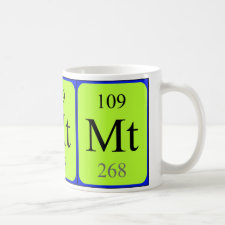
Authors: Hao Y, Gao RX, Liu DC, Zhang BB, Tang YH, Guo ZJ
Article Title: Preparation of biocompatible molecularly imprinted shell on superparamagnetic iron oxide nanoparticles for selective depletion of bovine hemoglobin in biological sample.
Publication date: 2016
Journal: Journal of Colloid and Interface Science
Volume: 470
Page numbers: 100-107.
DOI: 10.1016/j.jcis.2016.02.051
Alternative URL: http://www.sciencedirect.com/science/article/pii/S002197971630131X
Abstract: Bovine hemoglobin (BHb), as one of the high-abundance proteins, could seriously mask and hamper the analysis of low-abundance proteins in serum. To selectively deplete BHb, we design a simple and effective strategy for preparation of biocompatible molecularly imprinted shell on superparamagnetic iron oxide nanoparticles through surface imprinting technique combined with template immobilization strategy. Firstly, template proteins are immobilized on the directly aldehyde-functionalized magnetic nanoparticles through imine bonds. Then, with gelatin as functional monomer, a polymeric network molded around the immobilized template proteins is obtained. Finally, the specific cavities for BHb are fabricated after removing the template proteins. The effects of imprinting conditions were investigated and the optimal imprinting conditions are found to be 40 mg of BHb, 150 mg of gelatin, and 8 h of polymerization time. The resultant materials exhibit good dispersion, high crystallinity, and satisfactory superparamagnetic property with a high saturation magnetization (33.43 emu g-1). The adsorption experiments show that the imprinted nanomaterials have high adsorption capacity of 93.1 mg g-1, fast equilibrium time of 35 min, and satisfactory selectivity for target protein. Meanwhile, the obtained polymers could be used without obvious deterioration after six adsorption-desorption cycles. In addition, the resultant polymers are successfully applied in the selective isolation BHb from bovine blood sample, which could provide an alternative solution for the preparatory work of proteomics
Template and target information: protein, bovine hemoglobin, BHb
Author keywords: surface imprinting, Template immobilization, magnetic separation, biocompatibility, High-abundance protein



Join the Society for Molecular Imprinting

New items RSS feed
Sign-up for e-mail updates:
Choose between receiving an occasional newsletter or more frequent e-mail alerts.
Click here to go to the sign-up page.
Is your name elemental or peptidic? Enter your name and find out by clicking either of the buttons below!
Other products you may like:
 MIPdatabase
MIPdatabase









